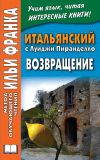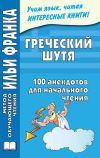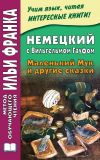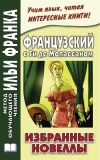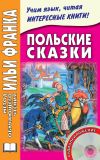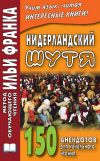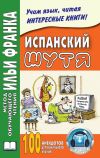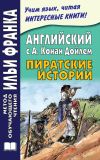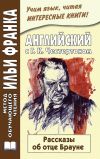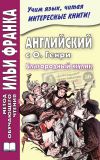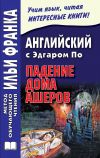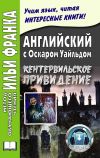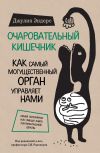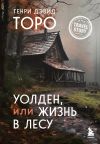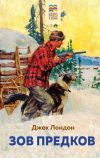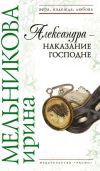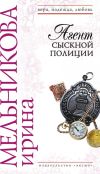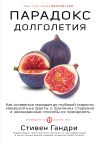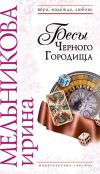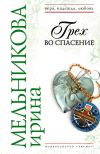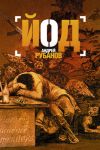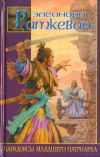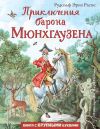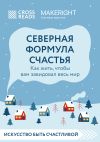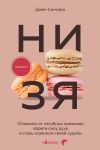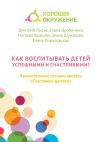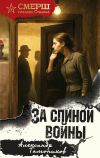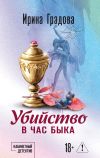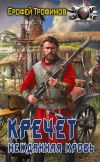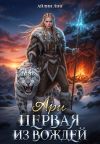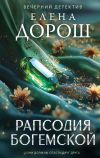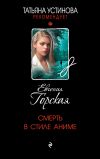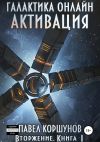Читать книгу "Английский с Редьярдом Киплингом. Рикки-Тикки-Тави / Rudyard Kipling. Rikki-Tikki-Tavi"

Автор книги: Редьярд Киплинг
Жанр: Иностранные языки, Наука и Образование
Возрастные ограничения: 12+
сообщить о неприемлемом содержимом

Darzee and his wife only cowered down in the nest without answering, for from the thick grass at the foot of the bush there came a low hiss – a horrid cold sound that made Rikki-tikki jump back two clear feet. Then inch by inch out of the grass rose up the head and spread hood of Nag, the big black cobra, and he was five feet long from tongue to tail. When he had lifted one-third of himself clear of the ground, he stayed balancing to and fro exactly as a dandelion tuft balances in the wind, and he looked at Rikki-tikki with the wicked snake’s eyes that never change their expression, whatever the snake may be thinking of.
“Who is Nag (кто такой Наг)?” said he. “I am Nag (я – Наг). The great God Brahm put his mark upon all our people (великий Бог Брахма наложил свой знак на весь наш народ; mark – знак; метка), when the first cobra spread his hood to keep the sun off Brahm as he slept (когда первая кобра развернула свой капюшон, чтобы защитить Брахму от солнца, пока он спал; to spread – развертывать/ся/, раскидывать/ся/; to keep – держать; защищать, охранять). Look, and be afraid (смотри и бойся)!”
He spread out his hood more than ever (он еще больше: «более чем когда-либо» развернул свой капюшон), and Rikki-tikki saw the spectacle-mark on the back of it that looks exactly like the eye part of a hook-and-eye fastening (и Рикки-Тикки увидел на его задней части очковую метку, которая выглядела в точности как /стальная/ петелька: «петельная часть» от застежки на крючок: «застежки “крючок + петля”»; spectacles – очки; eye – глаз; ушко /иголки/; петелька; проушина; hook – крюк, крючок; to hook-and-eye – застегивать на крючки; fastening – связывание, скрепление; замыкание, соединение; застежка на одежде). He was afraid for the minute (на мгновение он испугался; minute – минута; мгновение; миг, момент), but it is impossible for a mongoose to stay frightened for any length of time (но для мангуста невозможно оставаться испуганным = бояться на протяжении какого-то /более длительного/ времени = долго; possible – возможный; length – длина; продолжительность, протяженность /во времени/), and though Rikki-tikki had never met a live cobra before (и хотя Рикки-Тикки никогда раньше не встречал живой кобры), his mother had fed him on dead ones (его мать кормила его кобрами мертвыми; to feed), and he knew that all a grown mongoose’s business in life was to fight and eat snakes (он знал, что все задачи = главная задача взрослого мангуста в жизни – это сражаться со змеями и поедать /их/). Nag knew that too (Наг тоже знал это), and at the bottom of his cold heart (и в глубине своего холодного сердца; bottom – низ, нижняя часть; самая отдаленная часть), he was afraid (он боялся).

“Who is Nag?” said he. “I am Nag. The great God Brahm put his mark upon all our people, when the first cobra spread his hood to keep the sun off Brahm as he slept. Look, and be afraid!”
He spread out his hood more than ever, and Rikki-tikki saw the spectacle-mark on the back of it that looks exactly like the eye part of a hook-and-eye fastening. He was afraid for the minute, but it is impossible for a mongoose to stay frightened for any length of time, and though Rikki-tikki had never met a live cobra before, his mother had fed him on dead ones, and he knew that all a grown mongoose’s business in life was to fight and eat snakes. Nag knew that too and, at the bottom of his cold heart, he was afraid.
“Well (хорошо),” said Rikki-tikki, and his tail began to fluff up again (и его хвост снова начал распушаться; to fluff – встряхивать; распушить), “marks or no marks (/есть на тебе/ знаки или нет), do you think it is right for you to eat fledglings out of a nest (ты думаешь, что это правомерно для тебя = что ты имеешь право есть птенцов, /выпавших/ из гнезда; fledg(e)ling – оперившийся птенец; to fledge – выкармливать птенцов /до тех пор, пока они сами не смогут летать/; right – /прил./ правый, правильный; верный; справедливый (о поведении, поступках, высказываниях и т. п.); подходящий, надлежащий; уместный)?”
Nag was thinking to himself (Наг думал = размышлял про себя /о другом/), and watching the least little movement in the grass behind Rikki-tikki (следя за малейшим движением в траве позади Рикки-Тикки; little – маленький, небольшой; least – малейший, минимальный). He knew that mongooses in the garden meant death sooner or later for him and his family (он знал, что мангусты в саду означают смерть ему и его семье рано или поздно; soon – скоро, вскоре; в скором времени, в ближайшее время; late – поздно), but he wanted to get Rikki-tikki off his guard (и он хотел усыпить внимание Рикки-Тикки от его осторожности = усыпить внимание Рикки-Тикки; to get – получить; to get off – свести; guard – охрана, защита; бдительность, осторожность). So he dropped his head a little (поэтому он немного опустил голову; to drop – капать; опускать/ся/), and put it on one side (и положил = cклонил ее набок; side – сторона; бок).
“Let us talk (давай поговорим),” he said. “You eat eggs (ты /же/ ешь яйца). Why should not I eat birds (почему бы мне не есть птиц)?”
“Behind you (позади тебя)! Look behind you (посмотри позади себя = оглянись)!” sang Darzee (пропел Дарзи; to sing).

“Well,” said Rikki-tikki, and his tail began to fluff up again, “marks or no marks, do you think it is right for you to eat fledglings out of a nest?”
Nag was thinking to himself, and watching the least little movement in the grass behind Rikki-tikki. He knew that mongooses in the garden meant death sooner or later for him and his family, but he wanted to get Rikki-tikki off his guard. So he dropped his head a little, and put it on one side.
“Let us talk,” he said. “You eat eggs. Why should not I eat birds?”
“Behind you! Look behind you!” sang Darzee.
Rikki-tikki knew better than to waste time in staring (Рикки-Тикки знал, что лучше не терять времени, смотря /по сторонам/; to know – знать; to waste – терять даром; to stare – пристально смотреть, уставиться). He jumped up in the air as high as he could go (он подпрыгнул в воздух = вверх так высоко, как /только/ мог; to go – идти, ехать; двигаться), and just under him whizzed by (и как раз под ним со свистом пронеслась; to whizz – просвистеть, пронестись со свистом; делать /что-либо/ очень быстро, в бешеном темпе; to whizz by smth. – пронестисть со свистом мимо чего-либо) the head of Nagaina, Nag’s wicked wife (голова Нагайны, злой жены Нага). She had crept up behind him as he was talking (она подкрадывалась к нему сзади, пока он разговаривал; to creep – ползать; красться, подкрадываться), to make an end of him (чтобы прикончить его: «положить ему конец»). He heard her savage hiss as the stroke missed (он услышал ее свирепое шипение, когда она промахнулась; to hear; savage – дикий; злой, свирепый; stroke – удар; to miss – потерпеть неудачу). He came down almost across her back (он опустился /на лапы/ почти поперек ее спины = прямо ей на спину), and if he had been an old mongoose (и, будь он старым мангустом = будь он постарше), he would have known that then was the time to break her back with one bite (он знал бы, что теперь было /самое/ время прокусить ей спину одним укусом; to break – ломать, разбивать; to bite – кусать/ся/; bite – укус); but he was afraid of the terrible lashing return stroke of the cobra (но он боялся ужасного хлещущего возвратного удара кобры; to lash – хлестать, стегать, сильно ударять; lash – плеть, бич; рывок, стремительное движение /особ. чего-либо, что может сгибаться и разгибаться/; return – возвращение, возврат). He bit, indeed (конечно, он укусил /змею/; to bite), but did not bite long enough (но кусал недостаточно долго), and he jumped clear of the whisking tail (и /затем/ совсем отскочил от ее юркого хвоста; to whisk – смахивать, сгонять; быстро исчезнуть, юркнуть), leaving Nagaina torn and angry (оставив Нагайну, раненую и рассерженную; to tear – рвать/ся/, разрывать/ся/; оцарапать, поранить; angry – сердитый, злой).

Rikki-tikki knew better than to waste time in staring. He jumped up in the air as high as he could go, and just under him whizzed by the head of Nagaina, Nag’s wicked wife. She had crept up behind him as he was talking, to make an end of him. He heard her savage hiss as the stroke missed. He came down almost across her back, and if he had been an old mongoose he would have known that then was the time to break her back with one bite; but he was afraid of the terrible lashing return stroke of the cobra. He bit, indeed, but did not bite long enough, and he jumped clear of the whisking tail, leaving Nagaina torn and angry.
“Wicked, wicked Darzee (скверный, скверный Дарзи; wicked – злой, злобный; плохой, отвратительный, мерзкий )!” said Nag, lashing up as high as he could reach toward the nest in the thorn-bush (взмыв вверх, насколько мог дотянуться, по направлению к гнезду на кусте терновника; to lash – хлестать, стегать; нестись, мчаться). But Darzee had built it out of reach of snakes (но Дарзи построил его вне пределов досягаемости для змей; to build – строить; reach – протягивание; предел досягаемости, досягаемость), and it only swayed to and fro (и оно = гнездо только покачивалось из стороны в сторону; to sway – качать/ся/, колебать/ся/).
Rikki-tikki felt his eyes growing red and hot (Рикки-Тикки почувствовал, что его глаза становятся красными и горячими; to feel; to grow – расти; становиться) (when a mongoose’s eyes grow red (когда глаза мангуста краснеют), he is angry (/это значит, что/ он сердится)), and he sat back on his tail and hind legs like a little kangaroo (и он сел на свой хвост и задние лапки, как маленький кенгуру), and looked all round him (огляделся вокруг), and chattered with rage (и застрекотал от ярости; to chatter – щебетать, стрекотать). But Nag and Nagaina had disappeared into the grass (но Наг и Нагайна исчезли в траве; to disappear – исчезать).

“Wicked, wicked Darzee!” said Nag, lashing up as high as he could reach toward the nest in the thorn-bush. But Darzee had built it out of reach of snakes, and it only swayed to and fro.
Rikki-tikki felt his eyes growing red and hot (when a mongoose’s eyes grow red, he is angry), and he sat back on his tail and hind legs like a little kangaroo, and looked all round him, and chattered with rage. But Nag and Nagaina had disappeared into the grass.
When a snake misses its stroke (когда змее не удается удар = змея промахивается; to miss – потерпеть неудачу, не достичь цели, промахнуться), it never says anything or gives any sign of what it means to do next (она никогда ничего /не/ говорит и /не/ подает никакого знака относительно того, что собирается сделать дальше; to mean – намереваться, собираться). Rikki-tikki did not care to follow them (Рикки-Тикки не захотел следовать за кобрами; to care – беспокоиться, тревожиться; иметь желание), for he did not feel sure that he could manage two snakes at once (потому что он не был уверен, что сможет справиться с двумя змеями сразу; to feel – чувствовать; sure – уверенный; to manage – справляться). So he trotted off to the gravel path near the house (поэтому он рысью выбежал = потрусил на посыпанную гравием дорожку возле дома; to trot – идти рысью; to trot off – удалиться рысью; gravel – гравий; галька), and sat down to think (и сел подумать). It was a serious matter for him (это было серьезное дело для него).
If you read the old books of natural history (если вы почитаете старые книги по естествознанию; natural history – естествознание; natural – естественный, природный; history – история; историческая наука), you will find they say that when the mongoose fights the snake and happens to get bitten (вы найдете, что в них говорится, что когда во время сражения cо змеей мангуст, случается, бывает укушен; to fight – драться, сражаться; to happen – случаться, происходить; /случайно/ оказываться; to bite – кусать/ся/), he runs off and eats some herb that cures him (он убегает и съедает какую-то травку, которая исцеляет его; to cure – излечивать, исцелять). That is not true (это неправда). The victory is only a matter of quickness of eye and quickness of foot (победа – только в быстроте глаза и ног; matter – материя; дело; quick – быстрый) – snake’s blow against mongoose’s jump (удар змеи против прыжка мангуста) – and as no eye can follow the motion of a snake’s head when it strikes (а /тот факт, что/ никакой глаз не в силах уследить за движением головы змеи, когда она наносит удар; to follow – следовать, идти за; to strike – ударять/ся/, наносить удар), this makes things much more wonderful than any magic herb (делает /победу мангуста/ удивительнее любой волшебной травы).

When a snake misses its stroke, it never says anything or gives any sign of what it means to do next. Rikki-tikki did not care to follow them, for he did not feel sure that he could manage two snakes at once. So he trotted off to the gravel path near the house, and sat down to think. It was a serious matter for him.
If you read the old books of natural history, you will find they say that when the mongoose fights the snake and happens to get bitten, he runs off and eats some herb that cures him. That is not true. The victory is only a matter of quickness of eye and quickness of foot – snake’s blow against mongoose’s jump – and as no eye can follow the motion of a snake’s head when it strikes, this makes things much more wonderful than any magic herb.
Rikki-tikki knew he was a young mongoose (Рикки-Тикки знал, что он молодой мангуст), and it made him all the more pleased to think that he had managed to escape a blow from behind (а потому тем сильнее радовался при мысли, что ему удалось избежать удара сзади; to please – радовать, доставлять удовольствие; to manage – руководить, управлять; ухитриться, суметь сделать; to escape – бежать, совершать побег; избежать /наказания, опасности/, спастись). It gave him confidence in himself (это придало ему уверенности в себе; confidence – вера, доверие), and when Teddy came running down the path (и когда на дорожке показался бегущий Тэдди; to run – бежать), Rikki-tikki was ready to be petted (Рикки-Тикки был готов, чтобы его приласкали; to pet – баловать, ласкать).
But just as Teddy was stooping (но, как только Тэдди наклонился к нему; to stoop – наклонять/ся/, нагибать/ся/), something wriggled a little in the dust (что-то слегка зашевелилось в пыли; to wriggle – извивать/ся/), and a tiny voice said (и крошечный = тонкий голос сказал; tiny – очень маленький, крошечный): “Be careful (берегись; careful – заботливый; осторожный, осмотрительный; to be careful – остерегаться). I am Death (я – Смерть)!” It was Karait (это был Карайт), the dusty brown snakeling that lies for choice on the dusty earth (пыльно-коричневая змейка, которая любит лежать: «лежит преимущественно» на пыльной земле; choice – выбор; for choice – преимущественно, предпочтительно); and his bite is as dangerous as the cobra’s (и ее укус так же опасен, как /и укус/ кобры). But he is so small that nobody thinks of him (но она так мала, что никто не думает о ней), and so he does the more harm to people (и потому она приносит людям еще больший вред).

Rikki-tikki knew he was a young mongoose, and it made him all the more pleased to think that he had managed to escape a blow from behind. It gave him confidence in himself, and when Teddy came running down the path, Rikki-tikki was ready to be petted.
But just as Teddy was stooping, something wriggled a little in the dust, and a tiny voice said: “Be careful. I am Death!” It was Karait, the dusty brown snakeling that lies for choice on the dusty earth; and his bite is as dangerous as the cobra’s. But he is so small that nobody thinks of him, and so he does the more harm to people.
Rikki-tikki’s eyes grew red again (глаза Рикки-Тикки снова покраснели; to grow – расти; становиться), and he danced up to Karait with the peculiar rocking, swaying motion that he had inherited from his family (и он подскочил к Карайту тем особенным подпрыгивающим, раскачивающимся движением, которое унаследовал от своей семьи: «от своих предков»; to dance – плясать, танцевать; прыгать, скакать; to rock – качать/ся/, колебать/ся/; трястись; to sway – качать/ся/, колебать/ся/). It looks very funny (выглядит это очень смешно), but it is so perfectly balanced a gait that you can fly off from it at any angle you please (но такая поступь позволяет настолько совершенно сохранять равновесие: «но это такая совершенно сбалансированная поступь», что при желании можно отскочить в любую сторону под любым углом; to balance – сохранять равновесие, уравновешивать; to fly – летать; to fly off – соскакивать, отлетать; to please – радовать; желать, хотеть), and in dealing with snakes this is an advantage (а в общении со змеями это /большое/ преимущество; to deal – раздавать, распределять; общаться, иметь дело). If Rikki-tikki had only known, he was doing a much more dangerous thing than fighting Nag (если бы Рикки-Тикки только знал, что Карайт гораздо более опасен: «делал более опасную вещь», чем сражающийся Наг), for Karait is so small (потому что он так мал), and can turn so quickly (и может поворачиваться так быстро = такой юркий), that unless Rikki bit him close to the back of the head (что, если Рикки-Тикки не укусит его близко к задней части головы; to bite – кусать/ся/), he would get the return stroke in his eye or his lip (он получит ответный удар в глаз или губу; return – возвращение; ответный /выстрел, удар/). But Rikki did not know (но Рикки-Тикки /этого/ не знал). His eyes were all red (его глаза были совсем красные = горели), and he rocked back and forth (и он /прыгал/, качаясь, взад и вперед; to rock – качать/ся/, колебать/ся/), looking for a good place to hold (отыскивая лучшее: «хорошее» место для захвата; to look for – искать; to hold – держать, удерживать; hold – захват; сжатие). Karait struck out (Карайт бросился; to strike – ударять/ся/, наносить удар; to strike out – атаковать, набрасываться). Rikki jumped sideways and tried to run in (Рикки отпрыгнул в сторону и попытался сбежать /в дом/), but the wicked little dusty gray head lashed within a fraction of his shoulder (но злобная маленькая пыльно-серая голова пронеслась около самого его плеча; to lash – хлестать, стегать; нестись, мчаться; fraction – дробь; доля, часть), and he had to jump over the body (и ему пришлось перепрыгнуть через тело /змеи/), and the head followed his heels close (а /ее/ голова следовала за ним по пятам; heel – пята, пятка; close – /нареч./ близко, около; рядом).

Rikki-tikki’s eyes grew red again, and he danced up to Karait with the peculiar rocking, swaying motion that he had inherited from his family. It looks very funny, but it is so perfectly balanced a gait that you can fly off from it at any angle you please, and in dealing with snakes this is an advantage. If Rikki-tikki had only known, he was doing a much more dangerous thing than fighting Nag, for Karait is so small, and can turn so quickly, that unless Rikki bit him close to the back of the head, he would get the return stroke in his eye or his lip. But Rikki did not know. His eyes were all red, and he rocked back and forth, looking for a good place to hold. Karait struck out. Rikki jumped sideways and tried to run in, but the wicked little dusty gray head lashed within a fraction of his shoulder, and he had to jump over the body, and the head followed his heels close.
Teddy shouted to the house (Тэдди закричал, /повернувшись/ к дому): “Oh, look here (о, смотрите)! Our mongoose is killing a snake (наш мангуст убивает змею).” And Rikki-tikki heard a scream from Teddy’s mother (и Рикки-Тикки услышал пронзительный крик матери Тэдди; scream – вопль, пронзительный крик). His father ran out with a stick (его отец выбежал с палкой), but by the time he came up (но к тому времени, когда он подошел /к месту боя/), Karait had lunged out once too far (Карайт сделал выпад слишком далеко; to lunge – делать выпад, неожиданно наброситься; once – один раз; раз, разок; единожды, однажды), and Rikki-tikki had sprung (и Рикки-Тикки бросился; to spring – прыгать, скакать; бросаться), jumped on the snake’s back (запрыгнул на спину змеи), dropped his head far between his forelegs (сильно придавил ее голову передними лапами; to drop – капать; бросать; валить, сваливать; сшибать, сбивать; far – вдали, далеко; в значительной степени; between – между), bitten as high up the back as he could get hold (укусив в спину так высоко, как /только/ мог ухватиться = как можно ближе к голове; to bite – кусать/ся/; to get hold of smb./smth. – cхватить кого-либо, что-либо; ухватиться за кого-либо, что-либо), and rolled away (и откатился прочь; to roll – катиться; вертеть/ся/; to roll away – откатывать/ся/). That bite paralyzed Karait (этот укус парализовал Карайта), and Rikki-tikki was just going to eat him up from the tail (и Рикки-Тикки уже собирался съесть его /начиная/ с хвоста), after the custom of his family at dinner (по обычаю своей семьи за обедом), when he remembered that a full meal makes a slow mongoose (как вдруг вспомнил, что полная = обильная пища делает мангуста медленным = неповоротливым), and if he wanted all his strength and quickness ready (и, если он хочет /держать/ всю свою силу и быстроту наготове; ready – готовый), he must keep himself thin (он должен оставаться худым; thin – тонкий; худой).

Teddy shouted to the house: “Oh, look here! Our mongoose is killing a snake.” And Rikki-tikki heard a scream from Teddy’s mother. His father ran out with a stick, but by the time he came up, Karait had lunged out once too far, and Rikki-tikki had sprung, jumped on the snake’s back, dropped his head far between his forelegs, bitten as high up the back as he could get hold, and rolled away. That bite paralyzed Karait, and Rikki-tikki was just going to eat him up from the tail, after the custom of his family at dinner, when he remembered that a full meal makes a slow mongoose, and if he wanted all his strength and quickness ready, he must keep himself thin.
He went away for a dust bath under the castor-oil bushes (он отошел, чтобы выкупаться в пыли: «для пыльной ванны» под кустами клещевины; to go away – уйти, отойти; castor-oil /plant/ – клещевина), while Teddy’s father beat the dead Karait (пока отец Тэдди колотил /палкой/ мертвого Карайта; to beat). “What is the use of that (/ну и/ какой в этом толк; use – применение, использование; польза, толк)?” thought Rikki-tikki (подумал Рикки-Тикки). “I have settled it all (я же полностью разделался с ним; to settle – поселить; усадить; урегулировать, разрешить; разделаться, прикончить);” and then Teddy’s mother picked him up from the dust and hugged him (затем мать Тэдди подняла мангуста из пыли и /начала/ обнимать /его/; to pick – собирать; to pick up – поднимать, подбирать; to hug – крепко держать, сжимать в объятиях), crying that he had saved Teddy from death (крича, что он спас Тэдди от смерти), and Teddy’s father said that he was a providence (а отец Тэдди сказал, что это /божественное/ Провидение; providence – дальновидность, предусмотрительность; /божественное/ Провидение, Бог), and Teddy looked on with big scared eyes (а Тэдди только смотрел /на всех/ большими = широко открытыми испуганными глазами; to look on – наблюдать /со стороны; не вмешиваясь /; to scare – пугать, испугать). Rikki-tikki was rather amused at all the fuss (Рикки-Тикки довольно-таки забавляла эта суета; to amuse – развлекать; позабавить; fuss – возражение, протест; суета, шумиха), which, of course, he did not understand (/причины/ которой он, конечно, не понимал). Teddy’s mother might just as well have petted Teddy for playing in the dust (мать Тэдди могла бы с таким же успехом приласкать Тэдди за то, что он играл в пыли; to pet – баловать, ласкать; just as well – точно так же; с тем же успехом). Rikki was thoroughly enjoying himself (/во всяком случае/ Рикки был вполне доволен собой; thoroughly – полностью, вполне, совершенно; to enjoy – любить /что-либо/, получать удовольствие, наслаждаться).

He went away for a dust bath under the castor-oil bushes, while Teddy’s father beat the dead Karait. “What is the use of that?” thought Rikki-tikki. “I have settled it all;” and then Teddy’s mother picked him up from the dust and hugged him, crying that he had saved Teddy from death, and Teddy’s father said that he was a providence, and Teddy looked on with big scared eyes. Rikki-tikki was rather amused at all the fuss, which, of course, he did not understand. Teddy’s mother might just as well have petted Teddy for playing in the dust. Rikki was thoroughly enjoying himself.
That night at dinner (в тот вечер за обедом), walking to and fro among the wine-glasses on the table (расхаживая взад и вперед по столу среди бокалов для вина; to walk – идти, ходить /пешком/; гулять, прогуливаться), he might have stuffed himself three times over with nice things (он мог бы три раза = трижды всласть наесться всяких вкусных вещей; to stuff – набивать, заполнять; объедаться, жадно есть). But he remembered Nag and Nagaina (но он помнил о Наге и Нагайне), and though it was very pleasant to be patted and petted by Teddy’s mother (и, хотя это было очень приятно, когда мать Тэдди гладила и ласкала его; to pat – похлопывать; поглаживать; шлeпать; to pet – баловать, ласкать, гладить), and to sit on Teddy’s shoulder (и /было приятно/ сидеть на плече Тэдди), his eyes would get red from time to time (время от времени его глаза становились красными = вспыхивали красным огнем; to get – получить; становиться), and he would go off into his long war cry (и он издавал свой продолжительный боевой клич; to go off – начинать /что-либо внезапно делать/, разразиться) of “Rikk-tikk-tikki-tikki-tchk (рикк-тикк-тикки-тикки-тчк)!”

That night at dinner, walking to and fro among the wine-glasses on the table, he might have stuffed himself three times over with nice things. But he remembered Nag and Nagaina, and though it was very pleasant to be patted and petted by Teddy’s mother, and to sit on Teddy’s shoulder, his eyes would get red from time to time, and he would go off into his long war cry of “Rikk-tikk-tikki-tikki-tchk!”
Teddy carried him off to bed (Тэдди отнес его /к себе/ в постель), and insisted on Rikki-tikki sleeping under his chin (и настаивал, чтобы Рикки-Тикки спал под его подбородком = у него на груди). Rikki-tikki was too well bred to bite or scratch (Рикки-Тикки был слишком хорошо воспитан, чтобы кусаться или царапаться; to breed – вынашивать /детенышей/; воспитывать, обучать), but as soon as Teddy was asleep he went off for his nightly walk round the house (но как только Тэдди заснул, он отправился в свой ночной обход по дому; asleep – спящий; to be asleep – спать; to go off – отправляться; walk – шаг, ходьба; обход), and in the dark he ran up against Chuchundra, the musk-rat (и в темноте случайно натолкнулся на Чучундру, мускусную крысу), creeping around by the wall (которая кралась вдоль стены; to creep – ползать; красться). Chuchundra is a broken-hearted little beast (Чучундра – маленький зверек с разбитым сердцем; to break – ломать, разбивать; heart – сердце). He whimpers and cheeps all the night (она хнычет и пищит всю ночь; he – он /в англ. яз. названия животных обычно замещаются местоимением “he”, если не имеется в виду именно самка/; to whimper – хныкать; to cheep – пищать), trying to make up his mind to run into the middle of the room (пытаясь решиться выбежать на середину комнаты; mind – разум; желание, намерение, склонность; to make up one’s mind – принять решение, решиться /на что-либо/). But he never gets there (но она никогда не добирается туда; to get – получить; добираться, достигать).

Teddy carried him off to bed, and insisted on Rikki-tikki sleeping under his chin. Rikki-tikki was too well bred to bite or scratch, but as soon as Teddy was asleep he went off for his nightly walk round the house, and in the dark he ran up against Chuchundra, the musk-rat, creeping around by the wall. Chuchundra is a broken-hearted little beast. He whimpers and cheeps all the night, trying to make up his mind to run into the middle of the room. But he never gets there.
“Don’t kill me (не убивай меня),” said Chuchundra, almost weeping (сказала Чучундра, чуть не плача: «почти плача»; to weep – плакать, рыдать). “Rikki-tikki, don’t kill me (Рикки-Тикки, не убивай меня)!”
“Do you think a snake-killer kills muskrats (ты думаешь, что убийца = победитель змей убивает мускусных крыс)?” said Rikki-tikki scornfully (сказал Рикки-Тикки презрительно; scorn – презрение, пренебрежение).
“Those who kill snakes get killed by snakes (те, кто убивают змей, становятся = бывают убиты змеями),” said Chuchundra, more sorrowfully than ever (сказала Чучундра еще печальнее, чем всегда). “And how am I to be sure that Nag won’t mistake me for you some dark night (и как я могу быть уверена, что Наг по ошибке не примет меня за тебя какой-нибудь темной ночью; sure – уверенный; to be sure – быть уверенным; to mistake – ошибаться, неправильно понимать; принять кого-либо за другого или что-либо за другое)?”
“There’s not the least danger (эти опасения не лишены смысла: «это не самая меньшая опасность»),” said Rikki-tikki. “But Nag is in the garden (но Наг в саду), and I know you don’t go there (а ты, я знаю, не ходишь туда).”

“Don’t kill me,” said Chuchundra, almost weeping. “Rikki-tikki, don’t kill me!”
“Do you think a snake-killer kills muskrats?” said Rikki-tikki scornfully.
“Those who kill snakes get killed by snakes,” said Chuchundra, more sorrowfully than ever. “And how am I to be sure that Nag won’t mistake me for you some dark night?”
“There’s not the least danger,” said Rikki-tikki. “But Nag is in the garden, and I know you don’t go there.”
“My cousin Chua, the rat, told me (моя кузина Чуа, крыса, сказала мне; cousin – двоюродный брат, кузен; двоюродная сестра, кузина) – ” said Chuchundra, and then he stopped (и остановилась = замолчала).
“Told you what (сказала тебе что)?”
“H’sh (тсс)! Nag is everywhere, Rikki-tikki (Наг повсюду, Рикки-Тикки). You should have talked to Chua in the garden (тебе следовало бы поговорить с Чуа в саду).”
Внимание! Это не конец книги.
Если начало книги вам понравилось, то полную версию можно приобрести у нашего партнёра - распространителя легального контента. Поддержите автора!